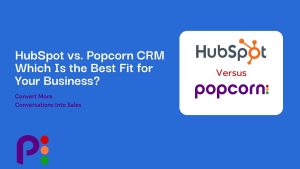Introduction: Balancing Sales Planning Time With Sales Work
Every business knows that there is far more to a sale than just the transaction. From closing; the nurturing of the prospect, to the first engagement, to the initial marketing: there is a process, and the resultant sales planning, that needs to be seen through.
Knowing your plan is one thing; juggling that planning with every other task is quite another.
Like many things, sales planning is a balancing act. Your time is precious, and it needs to be maximised, so your effort is the best it can be—especially if you’re running a small business when you probably don’t have much spare time. Certain business practices can help or hinder this. How much time you spend on your sales planning—compared to how much time you need to spend on it—can have a huge impact on the efficiency of your business.
Data: Building Up Over Time
Of course, it is easier said than done, and this is more apparent the longer you run a business. This is because your data is the foundation of your sales planning; the more you accumulate, the more you need to keep up to date.
Efficient sales planning requires efficient data management. Many small businesses find they have their data in multiple places, in sources such as:
– Spreadsheets (such as Google Drive, OneDrive, Apple Numbers)
– Note-taking software (Trello, Evernote, etc.)
– Task-specific software
– Mail inboxes
– Physical notes
– Memory
This is a simple and cost-effective solution when you’re just starting out, as business software can come with big commitments and even bigger price tags. However, when your business grows, along with potential audience, that data will grow and grow until you lose track of what’s where—and what’s important.
What does this have to do with sales planning? Simple: if you can’t reach the data, you can’t maximise your time.
Not having enough data—for example, important notes on your prospects’ activities—you can’t take your next steps with conviction. You don’t know who to focus on your time on, and whether they’re ready for another interaction from your company. You might be wasting your time only to push a prospect away from a potential sale!

Joined Up Data
If this sounds familiar, then you’ll be pleased to discover this isn’t how your business has to function. CRMs are there to help you get organised—your data included—which has knock-on benefits for you and your team.
1. Accessible Knowledge for Your Sales Planning
CRMs give you a centralised database, meaning those multiple sources of information are now poured into one. (This is especially true if your CRM has integration with software you’ve been using.) With all your data in one place, you’re much less likely to lose information on a prospect or a business decision—which could help you later down the line. Having all your data easily accessible allows you to zoom out and look at the bigger picture, finding patterns from across multiple sources, improving the depth and quality of your sales strategy.
For example, when your prospect interacts with you from multiple sources—such as social media, email marketing, or on your website—you can see how often, what they interacted on, and when they did it. From these bits of information, you can build up an idea of who that prospect is as a person, and what conversations would appeal to them. If your data about the prospect was in separate places, you might not have found a pattern in what they were interacting with, and that would have significantly reduced the amount of preparation you could make going into trying to close that sale.
2. Efficient Sales Planning Meetings
Having accessible data doesn’t just benefit employees on an individual level. It’s much easier for your coworkers, or team, to be on the same page when everyone can easily—and immediately—reach the data you’re using. This strengthens your convictions in your work, and dramatically reduces time taken to corroborate results. That corroboration avoids you and your team duplicating tasks, including contacting prospects—so you don’t risk annoying customers with multiple follow-up calls. The impact? You generate more meetings with your prospects, faster, so everyone can be more productive as a result. And, in turn, this means less sales planning, and more sales closing—and happier prospects in the end.

3. Sales Planning to Selling: Faster Responses
CRMs present your data in an understandable way. This means when you’re engaging with your prospects, all your information on them is in one place, and present when you need it. You can see at a glance where everyone is in your sales process and you know who you need to pick the phone up to. Your responses to their engagement can be quicker, as a result, because you can remind yourself of it during and after the fact; it can inform any future decisions you make in your sales planning. Automation in your CRM only furthers this, as you won’t forget who needs to be contacted when or why, and you can follow your previous examples in your future sales strategies.
Often, CRMs such as popcorn bring you the benefit of displaying your sales process as a pipeline, helping you to visualise exactly what is going on and when you need to respond. This is part of how they present your data in an understandable way: you can see the prospect management in real life, and see how each nurturing interaction leads onto the next. Giving you a scope of past actions, current positions and future interactions helps you with that bigger picture, and ensures no one gets forgotten.
4. Better Prospecting Means Better Future Sales Planning
Combined with the factors above, the impact on your business can be transformative. Being better prepared across the board puts you in a good position from the start: you can work more efficiently, with concrete evidence to motivate you in your efforts. With the confidence that you have the right knowledge—all of the right knowledge—to make a successful sale, your prospecting efforts are only set to improve. In turn, better prospecting brings more sales, and a higher chance of customer retention too.
In short, CRMs become your safety net. Instead of relying on information taken from multiple places and hoping it’s the full picture, you now know you’re as prepared as you possibly can be.
Better prospecting, better meetings, more confidence: huge benefits in their own right, undoubtedly, but together they all contribute to a much more efficient sales planning process. That means more success for less time, and a team that feels confident about each other’s work. Free to concentrate on other areas of the business too, the effect of using a CRM simply snowball. Improvements across the board will make the implementation worth it, and that maximisation of your time can only push you and your business onwards and upwards.
This was the case for AIM Internet, whose meetings were often made cumbersome by being unable to find the right information they needed. Bringing the right CRM into the mix—popcorn—cut down on sales planning time whilst boosting their efficiency. You can read more about that here.
Enjoyed this post? Comment below or read through our blog for more lead management and CRM tips, especially for small businesses.











